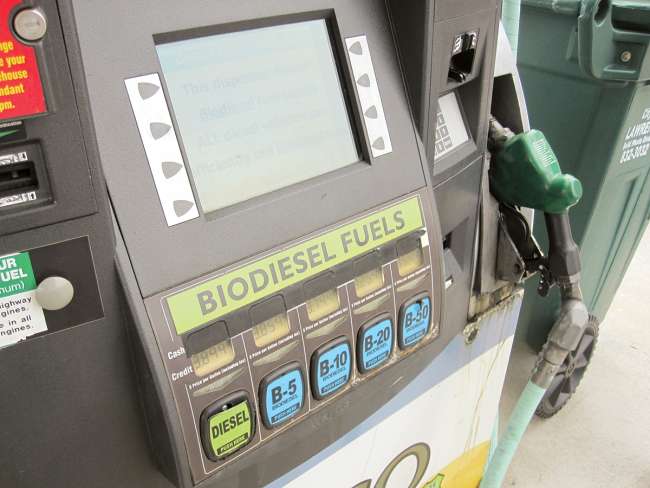Senior Reporter
More Than 145,000 Comments Filed on EPA’s Proposed Renewable Fuel Standard

There were more than 145,000 comments filed on a plan by the Trump administration to halt the future growth of biomass-based diesel fuel and reduce the short-term requirements for all renewable fuels.
An overwhelming number of comments on both sides of the issue were made anonymously, and most were part of near-identical wording offered in mass comment campaigns.
Most of the comments favored reductions as called for in the Environmental Protection Agency’s renewable fuels standard proposal, or outright elimination of the RFS program.

Of the 145,000 comments, there were only 1,400 postings, indicating a predominance of mass email campaign comments filed on the EPA’s website. The commenters ranged from ethanol and oil executives to biodiesel producers and environmentalists.
One of the largest blocks of commenters against the idea of renewable fuels came from recreational boat owners, who filed at least 18,760 comments in a mass campaign. The boat owners expressed a “deep concern” that the proposal would make it more difficult to find fuel that is safe and legal for their boat engines.
The renewable fuel standard, intended to move the United States toward greater energy independence and security and increasing the production of clean renewable fuels, has been in effect since 2006.
The EPA proposal would maintain the minimum required biomass-based diesel volumes at 2.1 billion gallons for 2019, but in 2018 set the advanced biofuels based on a minimum applicable volume of 4.24 billion gallons, a decrease from 4.28 billion gallons in 2017.
The biomass-based diesel requirements are set one year ahead of the other renewable fuels, which are being proposed for 2018.
Overall, the production level of renewable fuel minimum would drop to 19.24 billion gallons in 2018 from 19.28 in 2017.
EPA said July 18 in its formal notice of proposed rulemaking that it made the decision to use its cellulosic waiver authority “after careful review” but that it will nonetheless “ensure these renewable fuels will continue to play a critical role as a complement to our petroleum-based fuels.”
But not everyone who posted comments agreed.
The final renewable fuel standard must be completed by Nov. 30.
“As a strong supporter of the U.S. biodiesel industry, I am very concerned about the EPA’s proposed renewable volume requirement under the Renewable Fuel Standard,” wrote Rick Johnson of T-Haul Tank Lines of Springfield, Mo. “The reduction of 40 million gallons in the advanced biofuel 2018 category and holding the 2019 Biomass-Based Diesel category at the same level as 2018 is not in our nation’s best interest. These levels are unacceptable. Biomass-based diesel is the success story in advanced biofuels and an amazing contributor to value-added agriculture.”
“Biomass-based diesel is an immediate, drop-in replacement for petroleum diesel that has dramatic reductions in tailpipe emissions — as much as 80% less particulate matter and total carbon,” wrote Linda Anderegg of Mason City, Iowa. “These facts are important when you consider the large number of diesel engines transporting goods to our urban communities and the projected, continued growth in diesel demand.”
Leon Badeaux, operations manager at Pipe & Steel Industrial Fabricators in Denham Springs, La., wrote, “As America becomes more independent in using its own resources it only makes sense for us to take waste and our own agricultural products to create fuels within America so we are not so dependent on outside resources. We all quickly forget being held hostage by oil companies in overseas countries because of our dependence on foreign oil.”
James Hutcheson of Moreno Valley, Calif., said the EPA should minimize the harm done by the renewable fuel standard by reducing fuel-blend standards as much as the law allows and to “allow me to buy ethanol-free gasoline when I want to.”
“The renewable-fuel standard volumes must be reduced, as previous volumes have contributed to higher food and grocery costs, put our economy at risk and created opportunities to damage vehicles and small engines,” Hutcheson wrote.
Likewise, David Lyday, of Kingwood, Texas, called the standard “an unpopular and failed policy, forcing more ethanol and biodiesel into the retail infrastructure and vehicles than can actually fit.”
“The idea of ethanol is a relic from the early 1970s when Paul Erlich was predicting we would run out of space on the earth’s surface, and we’d use up all the available oil by the year 2000,” Lyday wrote.




